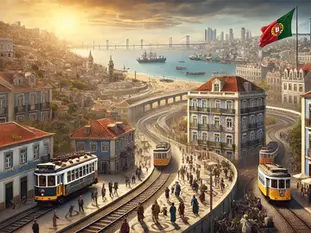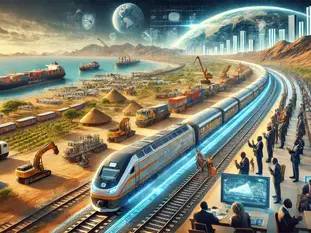Exploring the Rich Culture of Angola and Portugal

Kissanga Kungo: A Legacy of Hope, Struggle, and Reflection
3
0
0
As we approach the 50th anniversary of Angola’s independence, reflecting on the journey and legacy of my birthplace, Kissanga Kungo, feels both a privilege and a duty. Situated in the heart of Angola, this small yet vibrant region carries with it a rich tapestry of culture, resilience, and enduring hope. It is here, in the remote fields and bustling markets, that I first encountered the spirit of Angola—a land of extraordinary natural wealth, storied traditions, and a profound sense of community that binds its people even in the face of hardship.
Yet, as Angola stands at this historic crossroad, it faces a paradox that resonates deeply with those of us who carry its heritage. Despite the tremendous sacrifices made to secure independence, the promise of prosperity remains elusive for the vast majority of Angolans. While an elite few have risen to power, amassing wealth and influence, the majority of our people continue to struggle under the crushing weight of poverty—a reality that is all too evident in Kissanga Kungo and other rural regions. Angola’s natural wealth, which once offered the promise of a brighter future, now serves as a reminder of the unmet potential and the lingering wounds of neocolonial exploitation.
The Burden of Neocolonialism
This modern neocolonialism, enacted under the guise of globalization, seems no less insidious than the direct colonial rule we sought to cast off. Foreign corporations and governments have carved out vast portions of Angola’s resource-rich landscape, extracting oil, diamonds, and other prime materials for export. These resources, rather than fueling Angola’s progress, are shipped abroad, enriching foreign economies while leaving behind environmental degradation and socioeconomic disparity. The vision of Angola as a truly independent nation has, in many ways, been replaced by an economic dependency that perpetuates cycles of poverty and disenfranchisement.
One might question: how is this current paradigm any better than the promises made under Portuguese rule? Portugal, with all its faults, did initiate efforts toward urban and social development in Angola. While the colonial era was fraught with exploitation, there was a tangible, albeit limited, commitment to integrating Angolans into what was then the “first world”—a term symbolic of the promise of modernity, education, and infrastructure. Today, we are left to wonder: Is Angola truly free when its economy serves more as a supply chain for foreign interests than a means to uplift its own people?
Kissanga Kungo as a Microcosm of Angola’s Struggle
Kissanga Kungo embodies the spirit of Angola’s potential. Here, one finds not only a community that is deeply rooted in its traditions but also people who dream of a future where their children have opportunities for education, health, and a dignified life. Despite the natural beauty and bounty that surrounds us, everyday life here is often a testament to resilience in the face of neglect. Roads remain unpaved, schools underfunded, and hospitals overcrowded. The people of Kissanga Kungo, like many others across Angola, are left to navigate a reality where the rewards of their labor and resources flow outward, benefiting the distant “first world” while they bear the consequences.
In truth, Kissanga Kungo is a microcosm of a larger national struggle. Angola has an extraordinary array of resources and human potential, yet the benefits of this wealth have been concentrated in the hands of a privileged few, with little reinvestment into the communities that form the backbone of our society. The story of Kissanga Kungo is one that illustrates both Angola’s promise and its ongoing challenges.
Reimagining a Future for Angola
To honor the 50 years of independence and the sacrifices of countless Angolans, it is incumbent upon us to reimagine a future that places the well-being of our people above the profits of foreign interests. True independence is not merely a political status but an economic reality in which Angola’s wealth serves its citizens, promoting education, healthcare, and infrastructure that empower rather than exploit.
In this vision, the people of Kissanga Kungo—and indeed all of Angola—could thrive. It would require a commitment from leaders to safeguard Angola’s resources and reinvest in the nation’s future, fostering a sense of responsibility toward our people. The world must recognize that Angola is more than a repository of resources to be mined and sold. It is a land with a vibrant culture, rich history, and a populace deserving of dignity and prosperity.
As we stand on the cusp of 50 years of independence, may Kissanga Kungo and regions like it remind us of Angola’s strength and resilience. And may we, in turn, commit to an Angola where independence means not only freedom from foreign rule but a future in which every Angolan has the chance to prosper, rooted in the soil and soul of our beloved homeland.















